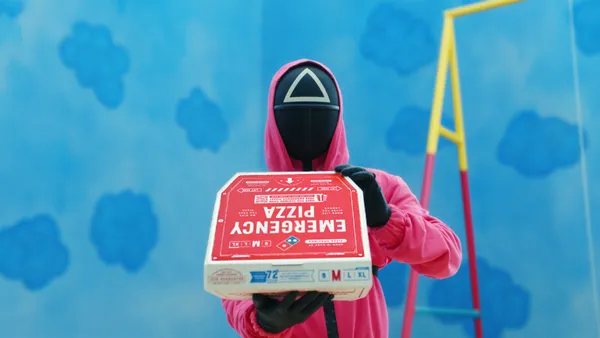Dive Brief:
- Publicis Groupe grew organic revenue, a key measure of agency health, 4.9% year over year in Q1, but acknowledged macroeconomic uncertainty could affect future client spending, according to an earnings release.
- The ad-holding group achieved record new business wins over the Q1 period and recently secured the data and media account of The Coca-Cola Company in North America. It also stayed active in dealmaking, acquiring identity solutions firm Lotame in March.
- Publicis has outshone competitors on the performance front for some time, but like its peers, is contending with potential fallout from a mounting global trade war. Several ad spending forecasters have cut their outlooks for a year that was already expected to see lower levels of investment than 2024.
Dive Insight:
Publicis extended an impressive hot streak in Q1, adding a key piece of Coke’s media business to its roster and acquiring Lotame to expand its identity graph. The latter deal will raise the total number of unique consumer profiles accessible to the ad-holding group to nearly 4 billion, or about 91% of the world’s internet-connected adults. Even as its strengths remain apparent in an otherwise flagging agency sector, the Leo and Starcom owner will likely be challenged as more brands hit the brakes on spending.
“This tough environment has not materialized in our [revenue] number, with March being the strongest month of the quarter. But like everyone else, we could experience cuts from several clients across many industries for the rest of the year,” said Publicis CEO Arthur Sadoun on a call discussing the Q1 earnings with analysts.
Publicis upheld expectations of 4% to 5% organic growth for 2025, believing the steady flow of new business will offset possible spending adjustments. The firm also expressed confidence that clients will lean on its end-to-end marketing offerings and data-driven know-how to weather choppy waters.
“We now have the most diversified revenue mix in the industry, making us more resilient than ever to every business cycle,” said Sadoun, calling out specialties in areas such as retail media, e-commerce and customer relationship management. “These new sources of revenue are compensating the cuts in traditional advertising that we, like all our peers, are experiencing.”
Many marketers are in a holding pattern due to the Trump administration’s careening tariff agenda, where steep levies have been imposed on global trading partners only to quickly be reversed, or in the case of China, significantly escalated. As sectors like retail and automotive remain stuck in a form of limbo, recessionary fears are rising, and with them, the potential for marketing budgets to be slashed. Declining ad spend is often a leading indicator of a recession, and forecasters including Magna and Madison and Wall have already shifted their expectations for the year downward.
One potential consequence of the uncertainty is a push toward more performance marketing channels that tend to be cheaper and easier to tie back to a purchase, a shift that happened in the early days of the pandemic. Some brands are also ramping up ads that encourage consumers to buy now before the full force of the tariffs potentially skyrockets prices, according to The New York Times. While the industry feels particularly unsettled at the moment, one upshot is that wrestling with chaos has become fairly commonplace for marketers.
“We went through COVID, we went through war, we went through inflation,” said Sadoun. “So I think that everyone knows that at the moment, if you stop [investing], you lose market share that [is] very difficult to take back.”















